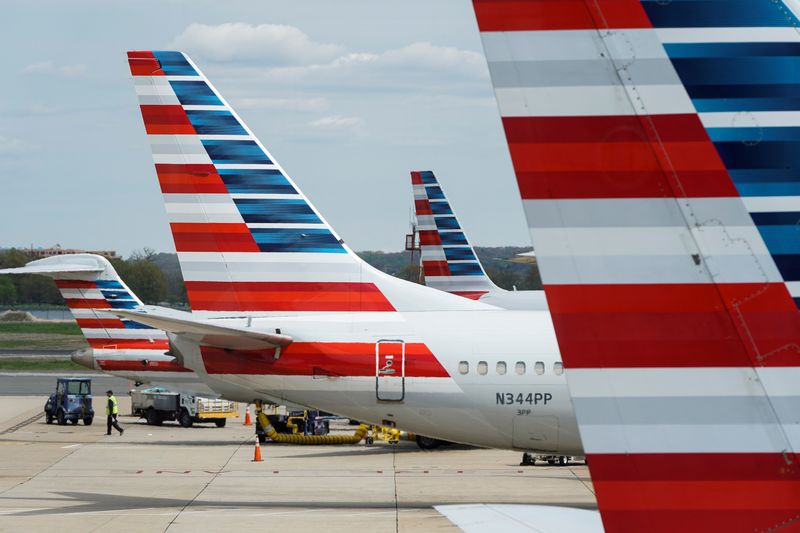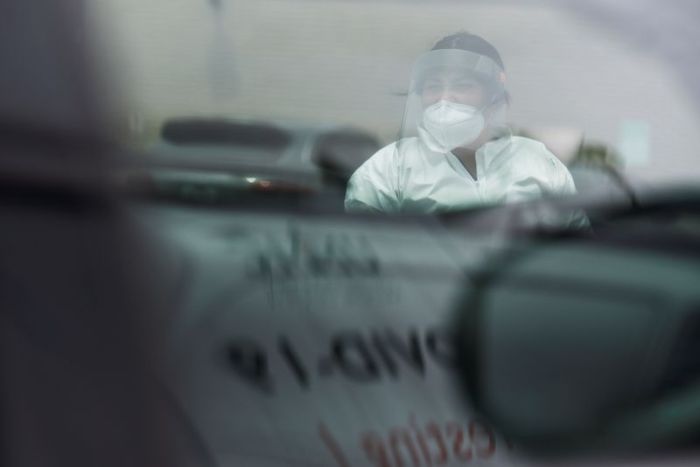(Reuters) – American Airlines <AAL.O> said on Friday that it will no longer restrict the number of seats sold on flights beginning July 1, in an effort to come back from the impact of the coronavirus.
The announcement comes before a meeting between the chief executives of major U.S. airlines, including American, and senior U.S. officials, including Vice President Mike Pence, at the White House to discuss several virus-related travel issues and to press for government-administered temperature checks for airline passengers.
U.S. airlines are bleeding cash as travel suffers in the pandemic and some have warned capping seats sold on each flight to allow for more space between passengers is not viable.
American previously limited its seating capacity at 85% on each flight, or roughly 50% of the main cabin middle seats.
The company will notify customers if their flight will be full and allow them to move to more open flights when available, mirroring a United Airlines <UAL.O> policy.
Delta Air Lines <DAL.N> and Southwest Airlines <LUV.N> have said they will continue limiting seating capacity through September.
The Allied Pilots Association, which represents American Airlines’ pilots, wants the government to subsidize empty seats to reassure people about flying.
American’s shares lost 5%.
Airlines are touting deep cleaning and hospital-grade air filters. American said it had teamed with Vanderbilt University Medical Center on health and cleaning matters and will begin asking customers June 30 during the check-in process to certify they have been free of COVID-19 symptoms for 14 days.
U.S. passenger numbers have rebounded from lows reached in April, but there is growing concern about the impact of a fresh spike in coronavirus cases in many U.S. states, including Texas, where American is based.
U.S. Representative Peter DeFazio, who chairs the Transportation and Infrastructure Commitee, wants airlines to keep seats open, noting Congress awarded them $25 billion to cover payroll through Sept 30. “Through that time period they can afford to operate with spacing,” he told Reuters.
(Reporting by Sanjana Shivdas in Bengaluru, Tracy Rucinski in Chicago and David Shepardson in Washington; Editing by Arun Koyyur and Jonathan Oatis)

























